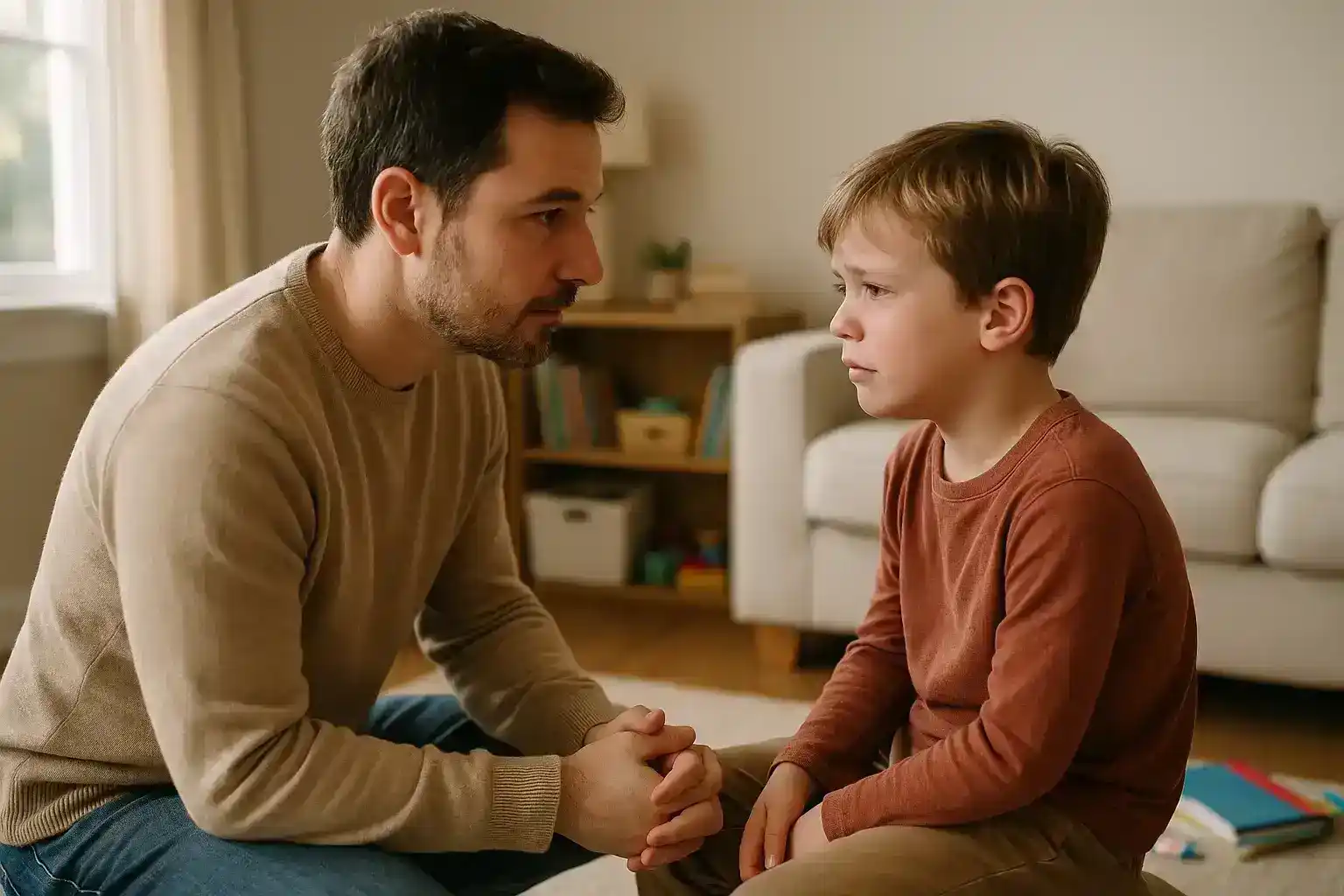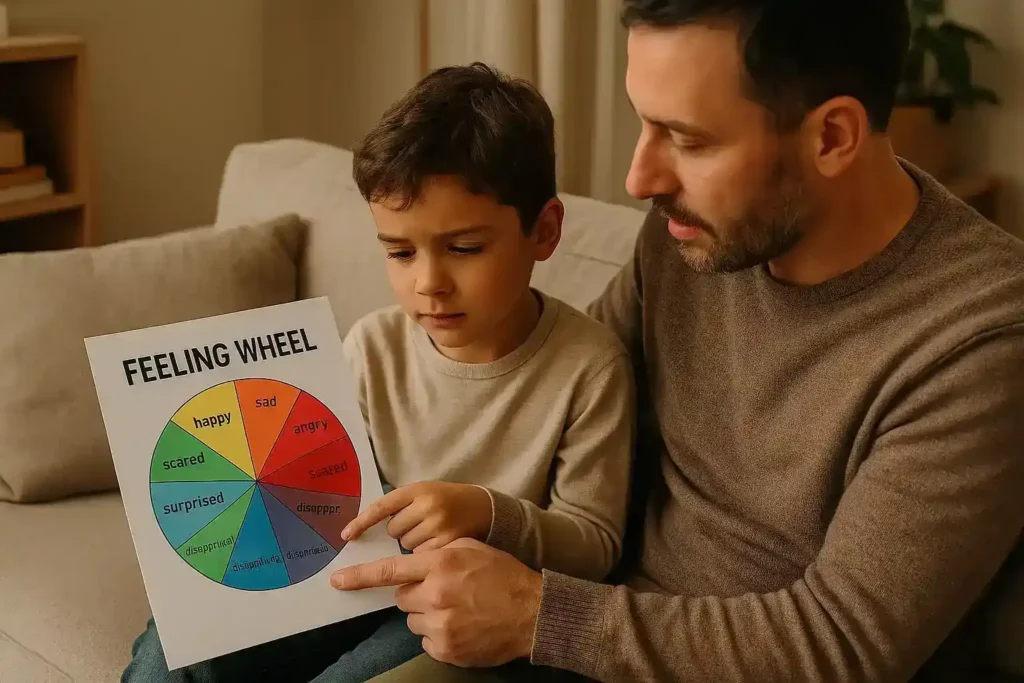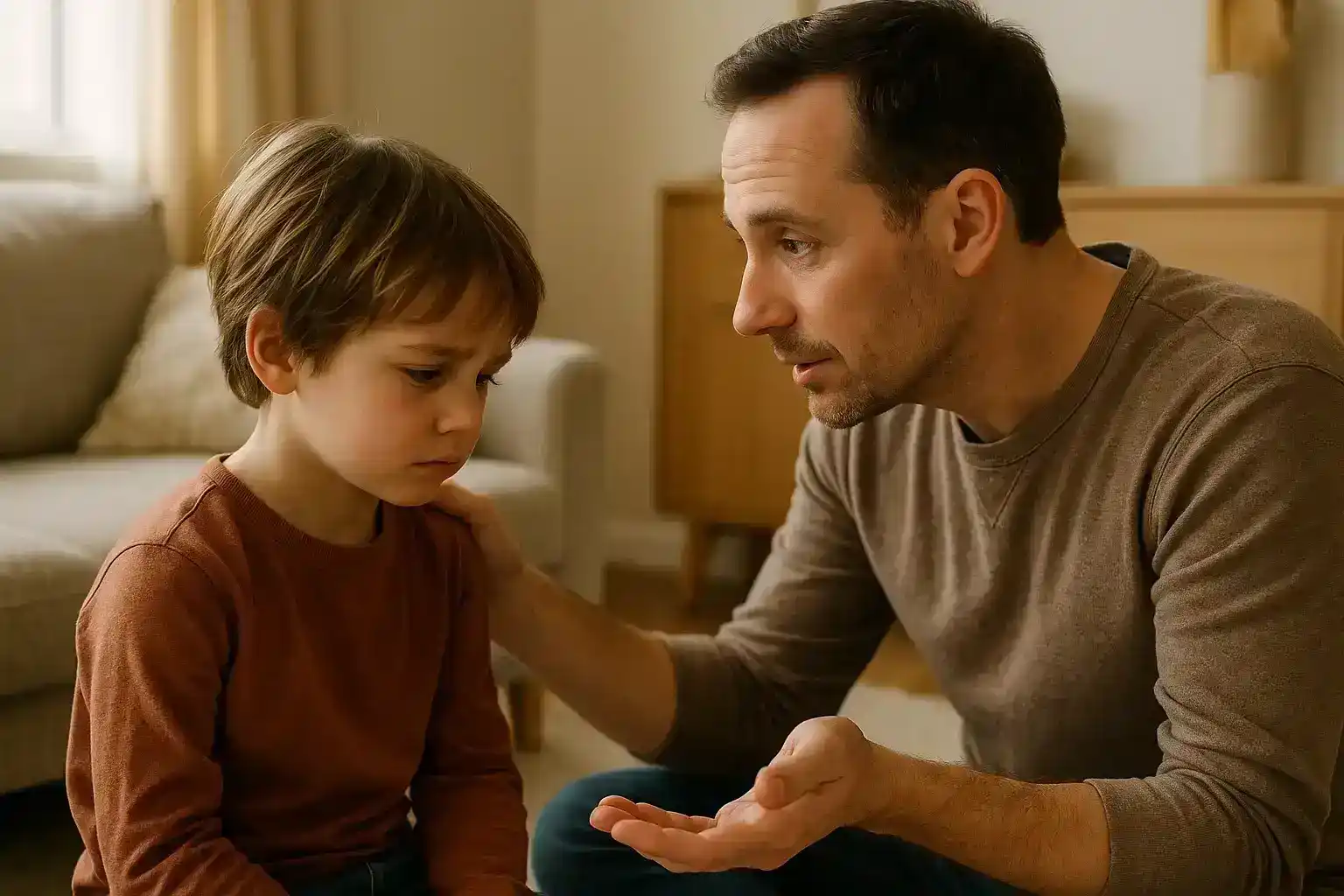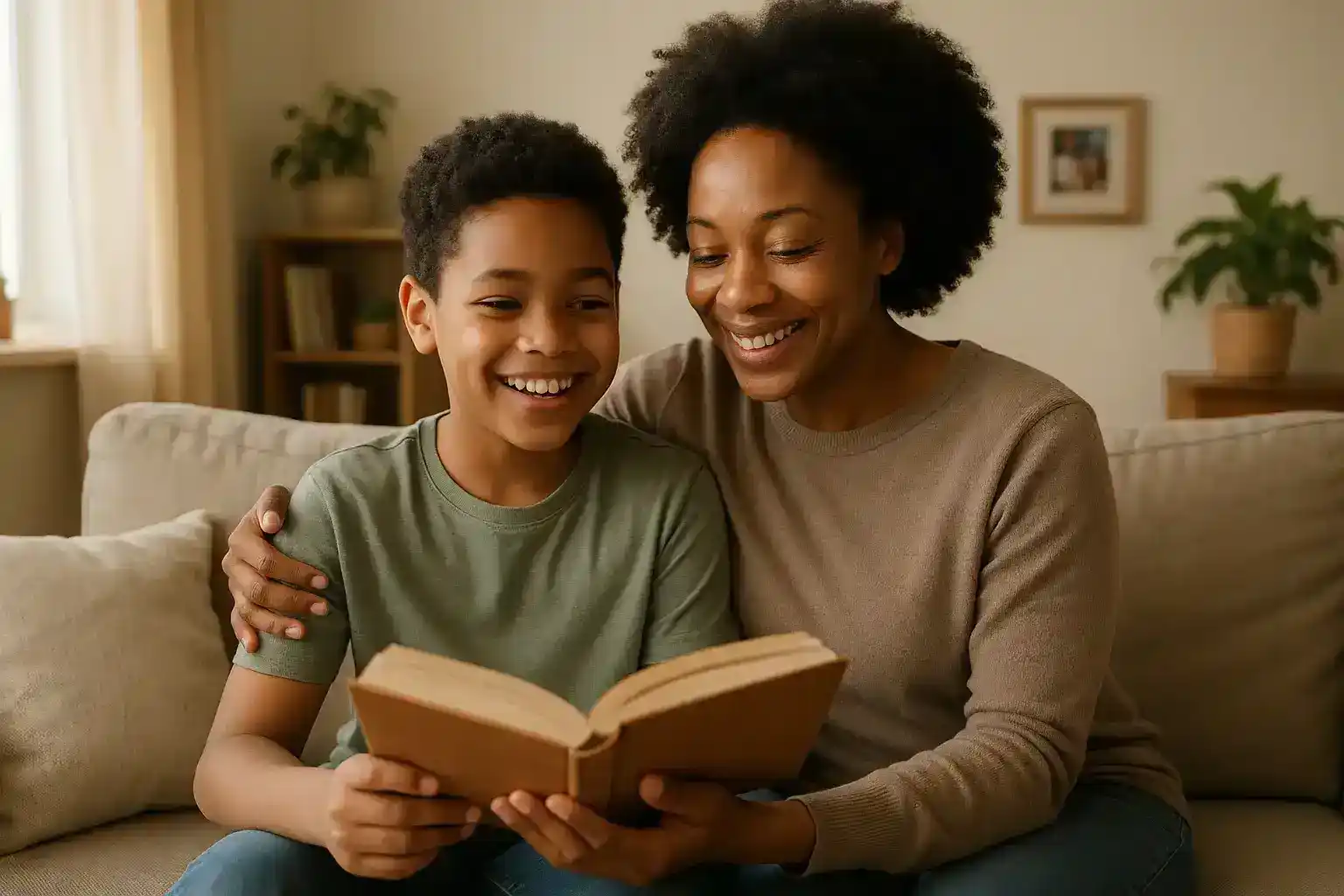Parenting is similar to tightrope walking these days. There is so much pressure exerted by school, social expectations, or the involvement of children in various activities, so much so that a parent feels stretched to the limits. We want everything good for the children, and, in this quest, we have lost sight of our calm and emotional balance.
If you have ever felt terrible after yelling at a child or if you have had a difficult time controlling the tantrums of your own child, have confidence in knowing you are not alone in this. A whole lot of people were not taught how to handle their emotions as they grew up; hence, they just repeat what they learned. This is the time when emotional support for parents plays a big role.
Parenting emotional intelligence isn’t about being “perfect,” it is about awareness; being aware of your triggers, managing your stress, and responding instead of reacting.

What is Parenting Emotional Intelligence (EQ)?
Parenting emotional intelligence refers to the ability to recognize, understand and manage your feelings, while encouraging your child to do the same. It is what allows you to be patient when your child is struggling, remain calm when your child is angry, and be caring when they have made a mistake.
When parents develop parenting emotional intelligence, they create a stronger connection with their children. Children will feel safer, understood, and more confident in their own feelings. Instead of raising children to fear, we raise children who understand, proactively cooperate, and are emotionally stronger.
Emotional intelligence does not mean we are never upset; it means we learn to pause, reflect and choose our healthiest response.

The Pause Button: How to Manage your Triggers before Reacting
We all have emotional triggers, those times when our child’s behaviors have us on the edge of emotional response. The key to managing these times is mindful parenting training, or allowing us to respond with a measure of awareness instead of impulse.
One very simple and highly effective tool is the S.T.O.P. method of pausing:
S- Stop. This means pause for a moment when emotions rise, and then react.
T- Take a breath. Deep breaths will calm your body and clear your mind.
O- Observe. Notice what is happening: your feelings, your child’s feelings, and the context.
P- Proceed. Respond mindfully, not emotionally.
Once you practice this regularly, you will not only be able to model self-control for your child, but your child will see you self-regulate and learn it is okay to stop and manage their feelings before responding.

Teaching Your Child to Name Their Feelings: The Feeling Wheel
Most times, kids react because they lack the words to describe what they feel inside. Teaching children emotional vocabulary is among the most precious gifts that a parent or caregiver can bestow upon a child.
A very useful and effective tool is the Feeling Wheel, which is a sort of visual display outlining feelings such as happy, sad, mad, scared, disappointed, and so on.
Try this one: The next time your child is having an explosive reaction, gently ask, “Can you point to what you are feeling on the wheel?” In time, the child replaces the outbursts with “I feel frustrated.” This step will go a long way toward emotional awareness and communication about emotions.

From Punishment to Connection: Using EQ in Disciplinary Moments
Discipline does not have to mean punishment, and maybe fear and shame are just working against the trust between the parent and the child. Consider approaching discipline from an emotionally intelligent point of view: teaching-your child is helped through the understanding of the consequence with compassion and respect.
For example, a parent might say, “Stop being rude!” when a child is acting out. A parent could say, “I see you’re upset. Let’s talk about a better way to demonstrate that.” This not only connects the child’s feelings to behavior, but allows the child to recognize they have control.
Setting boundaries kindly communicates that love and limits can co-exist. It enhances parent-child connectedness.

Your Journey as a Mindful Parent: Next Steps
Parenting is a journey, not a destination. You will make mistakes, you will lose your patience, and you will learn along the way — which is completely acceptable.
If you are ready to increase the amount of calmness, connection, and understanding in your home, an emotional intelligence coaching program may support you. In a series of tailored sessions, you will discover your emotional patterns, manage your stress more effectively, and create a healthy, nurturing environment for your family that supports you and your child.
Every little norm change — one pause, one deep breath, one kind response — creates a ripple effect in your family’s emotional environment.

Building a Legacy of Emotional Health
Consider you are parenting a child who feels safe expressing their emotions, who understands empathy and is being raised to be a confident, balanced adult. This is the power of emotionally intelligent parenting.
When you invest in your own emotional growth, you are not just shaping your child’s behaviour and your own behaviour, but creating a legacy of emotional health that our children might pass on for generations to come.
Your home shifts to become a place of calm conversations rather than conflict, and your child will learn the definition of emotional strength by showing patience, understanding, and love.

FAQs
Q1. I often lose my temper. Is it too late to become a mindful parent?
It is never too late. In every moment, there is an opportunity to exhibit emotional intelligence. Even when you apologize after a wrong, you teach your child that it is OK to be imperfect sometimes and to take responsibility for it.
Q2. How is this different from traditional Indian parenting?
Mindful parenting does not mean being cut off from our culture. It is a combination of traditional respect and values with emotional awareness, which helps children grow independent and respectful at the same time.
Q3. Can these techniques work with teenagers?
Yes, they do. Teenagers need emotional validation and calm communication more than anyone. The more you listen and acknowledge their feelings, the more they trust you.
Break the Cycle of Anger
You can make the change that will matter. Stop letting anger continue to destroy your peace or your relationships.
Enroll in our online Anger Management course today and begin rebuilding your relationships—and your sanity—one step at a time.
Ready to Become a Calm, Confident Parent Your Child Needs?
Explore our Emotional Intelligence Coaching for Parents and live the happy, harmonious family life you deserve.
